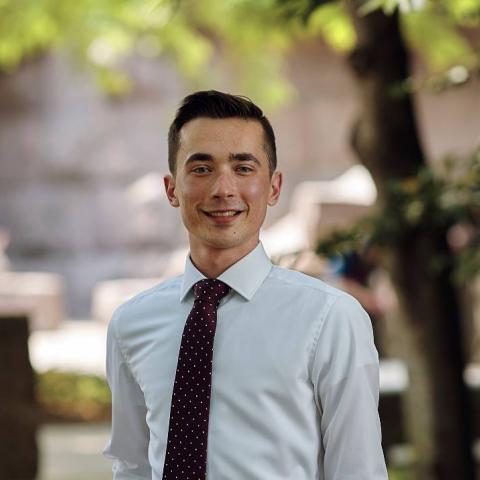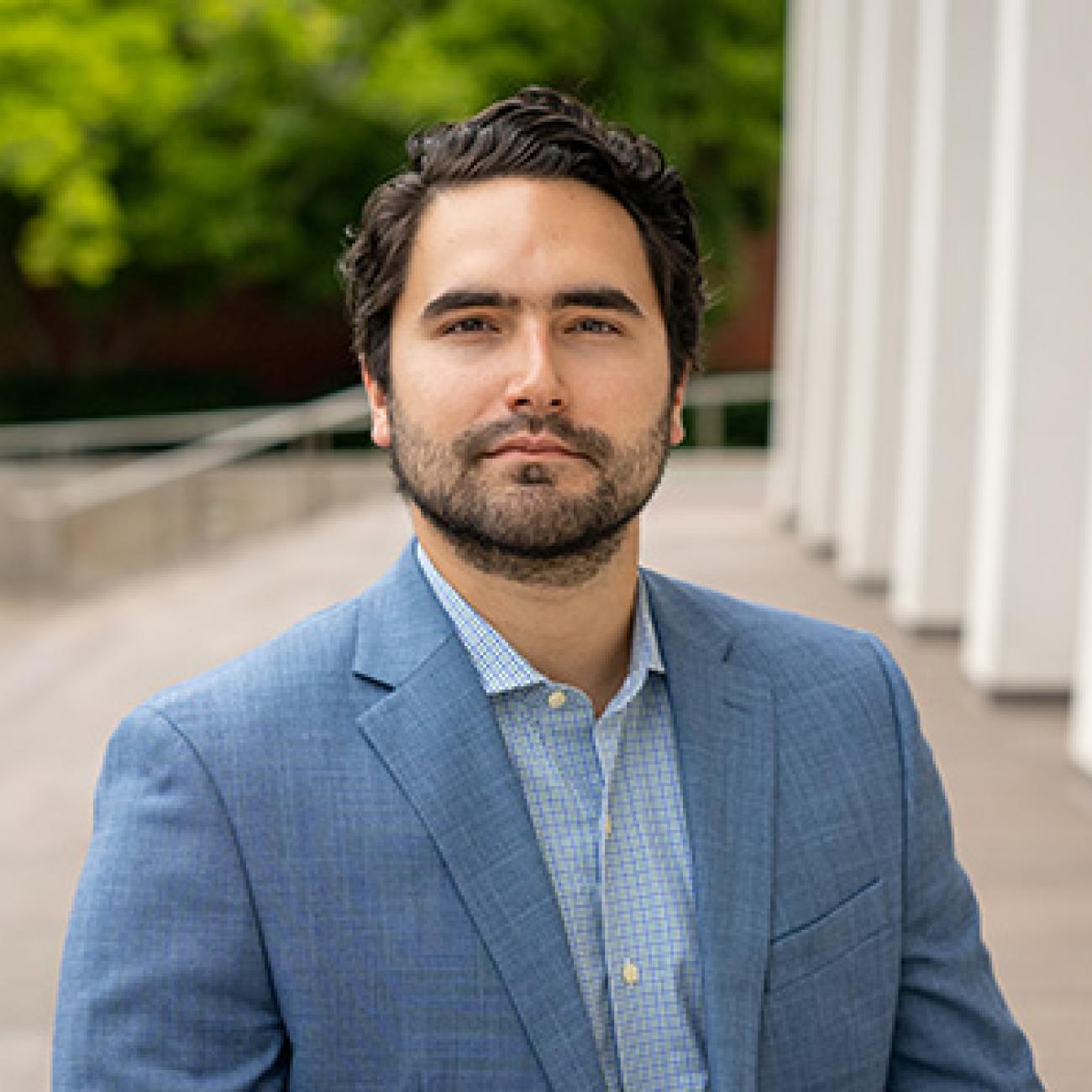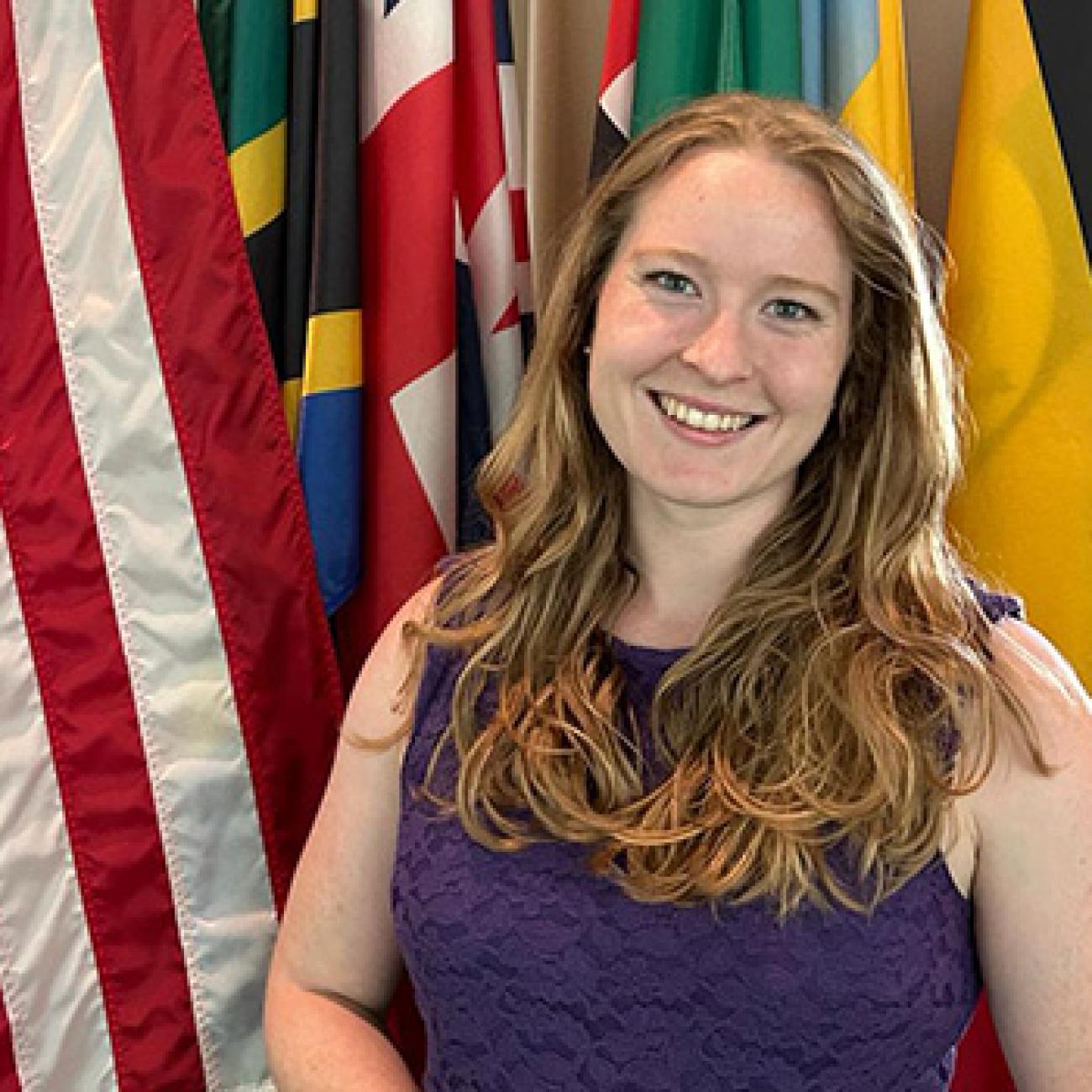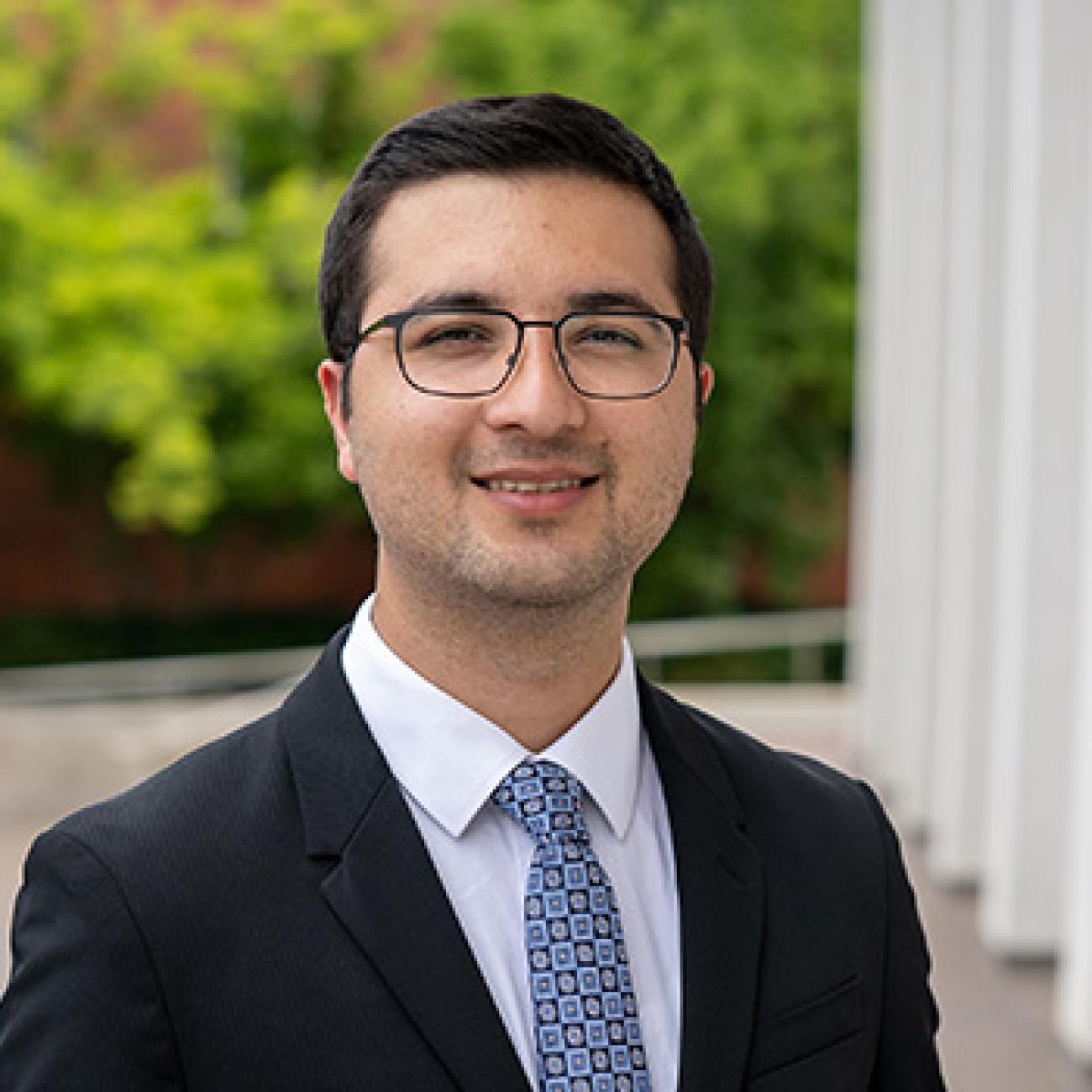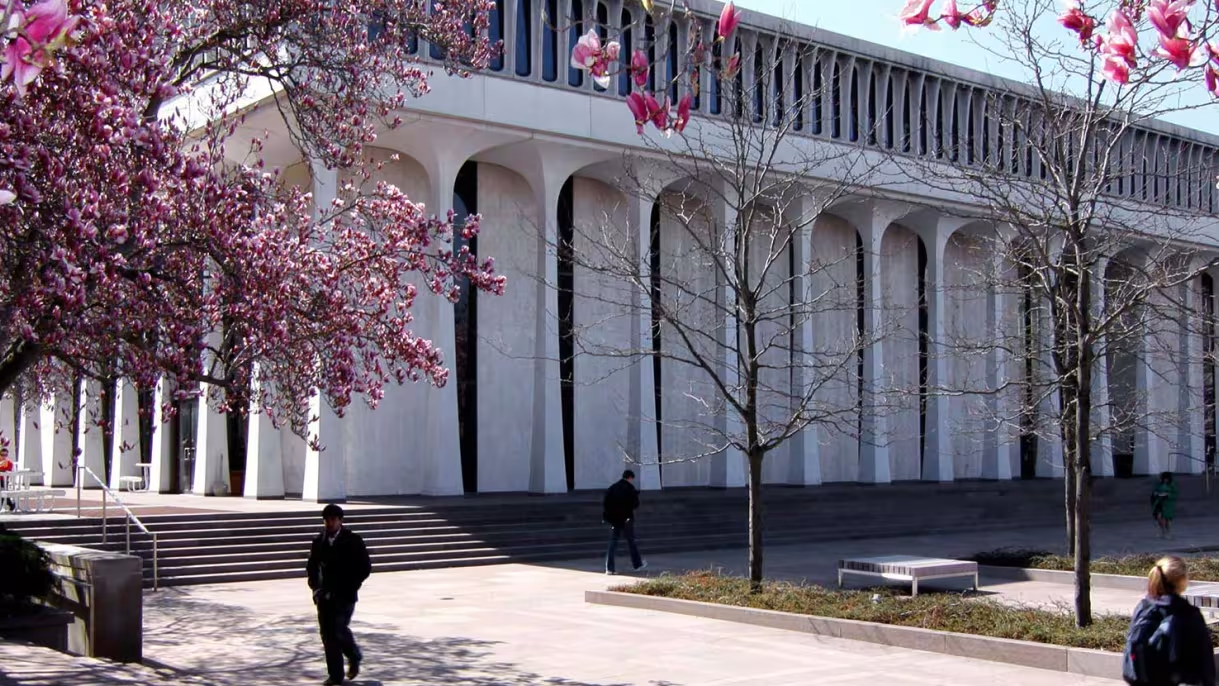The School’s core curriculum builds skills in political, economic, quantitative, and behavioral analysis. Previous coursework in mathematics, statistics, and economics is highly recommended. The vast majority of enrolled MPA students have prior full-time work experience.
A sincere commitment to public service is the single-most important attribute in the application. This can be demonstrated through volunteer interests, internships, and full-time professional work experiences focused on the public good.
Admissions Timeline

University Statement on Diversity and Non-Discrimination
Princeton University is committed to equal opportunity and non-discrimination. To maximize excellence, we seek talent from all segments of American society and the world, and we take steps to ensure everyone at Princeton can thrive while they are here. That is the sole rationale and purpose of our diversity and inclusion programs, all of which are voluntary and open to all, and which comply with federal and state non-discrimination laws. Princeton does not discriminate on the basis of race, sex, ethnicity, color, national origin, religion, disability, or any other protected characteristic, and Princeton does not provide special benefits or preferential treatment on the basis of a protected characteristic.
Curriculum
Core Courses
- Race, Power and Inequality (500)
- Politics of Public Policy (501)
- Psychology for Policy Analysis and Implementation (502)
- Quantitative Analysis (507)
- Applied Econometrics (508)
- Microeconomics (511)
- Macroeconomics (512)
- Policymaking in Diverse Societies Course
- Policy Workshop
Amy Williams Navarro MPA '20
International Relations
Field I emphasizes the nature of the international system and ways in which states conduct their foreign policies, particularly in a global environment where non-state actors have increasing influence. Examples of focus include:
- Rule of law
- Diplomacy
- Elections in fragile states
- International trade
- Human rights
- National security
- Defense policy
- Climate change and global environmental governance
- International negotiation
- Weapons of mass destruction
Students tend to have previous professional experience in the field, coming from government, media, nonprofits, political organizations, policy think tanks, U.S. armed forces, Peace Corps, United Nations, and the World Bank. Since mastery of a foreign language is often needed for future careers, the School provides funding for those who study a language concurrent with their summer internship.
International Development
Field II is concerned with low-income countries and transition economies as they pursue development strategies under a wide range of political regimes and economic conditions. Field II both overlaps and complements Field I. Examples of focus include:
- Humanitarian relief
- Immigration policy
- Innovations for successful societies
- Economic development
- Democratization
- Conflict resolution
- Global health
- Poverty, inequality, and health
- Social entrepreneurship and innovation
Students typically have worked for government and nonprofit organizations as researchers, analysts, economists, community organizers, human rights observers, election monitors, and Peace Corps volunteers. As with Field I, students can study language while engaging in their summer internship. On occasion, the internship can be extended to a full year of practical experience and language acquisition.
Domestic Policy
Field III emphasizes U.S. domestic policy, with the American political system as the backdrop. Examples of focus include:
- Affordable housing
- Education
- Health policy
- Identity, power, and policy
- Immigration
- Energy and the environment
- Inequality and poverty
- Democracy or civic engagement
- Nonprofit management
- Philanthropy
- Federal, state, and local finance
- Social entrepreneurship
- Urban economic development
Typically students have worked in government, for nonprofit or community-based organizations, on political campaigns, in health policy, and in education as community organizers, program managers, teachers, labor activists, and research fellows.
Economics and Public Policy
Field IV stresses both the analysis of economic problems that prompt public policy decisions and the study of the economic effects of various policies. Students are expected to master the fundamental principles and tools of economic analysis and to develop the ability to assess and apply the results of professional economic studies.
Field IV overlaps the other three fields but goes beyond the traditional study of policy issues by providing more intensive training in the economic analysis of public policy. Some students choose between a domestic or international focus. Examples of focus include:
- International trade policy
- Behavioral economics and applications
- Public economics and public finance
- Economic development
- Program and policy evaluation
- Macro and financial policy
Students have usually worked as analysts, program associates, economists, and researchers for global research centers and programs, government agencies and central banks, multilateral organizations, and development finance institutions.
Certificates
The HHP certificate trains graduate students for careers in health policy in the public and nonprofit sectors, giving them an understanding of the determinants of health and well-being and the role that public policy plays in shaping the quality of people's lives. The program provides broad training in core topics in health policy as well as more specialized courses. It is designed for students with domestic or international health interests.
The goal of the STEP certificate is to develop a deeper understanding of current scientific, technological, and environmental issues and potential local, national, and international policy responses. Students receive interdisciplinary training that facilitates communication between technical experts and policymakers. Students may choose to focus their coursework on Energy and Environmental Policy or Information Technology Policy.
The policy focus of the UP certificate is global, and the coursework is grounded in the interdisciplinary and comparative study of cities and urban problems in both industrialized and developing countries. The UP certificate emphasizes the social, economic, and political dimensions of urban problems and is designed to prepare students for careers in urban policy analysis and economic development in national, state, and local governments, nonprofit organizations, think tanks, and international organizations.
First Destinations
Public Sector
Nonprofit Sector
Domestic Focus
International Focus
Special Programs
A four-year MPA/Juris Doctor program allows students to combine the study of law and the study of public affairs through formal agreements with law schools at Columbia University, New York University, and Stanford University. Prospective students must indicate their desire to pursue a joint degree at the time of application by completing an additional joint degree statement and must simultaneously apply to and be admitted at both programs.
A three-year MPA/MBA program allows students to combine the study of management and the study of public and international affairs through a formal arrangement with the Stanford Graduate School of Business (GSB). Prospective students must submit an additional joint degree statement at the time of application and must simultaneously apply to and be admitted to both programs. GSB is the only MBA program SPIA will consider for a joint MPA/MBA.
Scholars in the Nation's Service Initiative (SINSI) is a scholarship program designed to encourage, support, and prepare Princeton University seniors and admitted first-year MPA students to pursue careers in the U.S. government. The program fully funds an average of four students per year — covering two years of study as a MPA student and a two-year fellowship with the U.S. government. Applications are due each year in late October.

At SPIA, we see our diversity as a strength. Having varied perspectives and representation from across the country and the globe in the classroom not only enriches conversation, but it also prepares students to evaluate an issue from multiple angles to help develop thoughtful and effective policy. We welcome people from small towns and big cities, from the United States and different countries all around the world, from large public schools and small private ones, as well as individuals with a whole host of distinctive lived experiences. All are welcome here.

Other schools ask you to invest in your education. At SPIA, we invest in you. If you are accepted into one of our programs, then you are eligible for full financial support for tuition and required fees plus a generous living stipend. There is no extra essay or separate application process.





